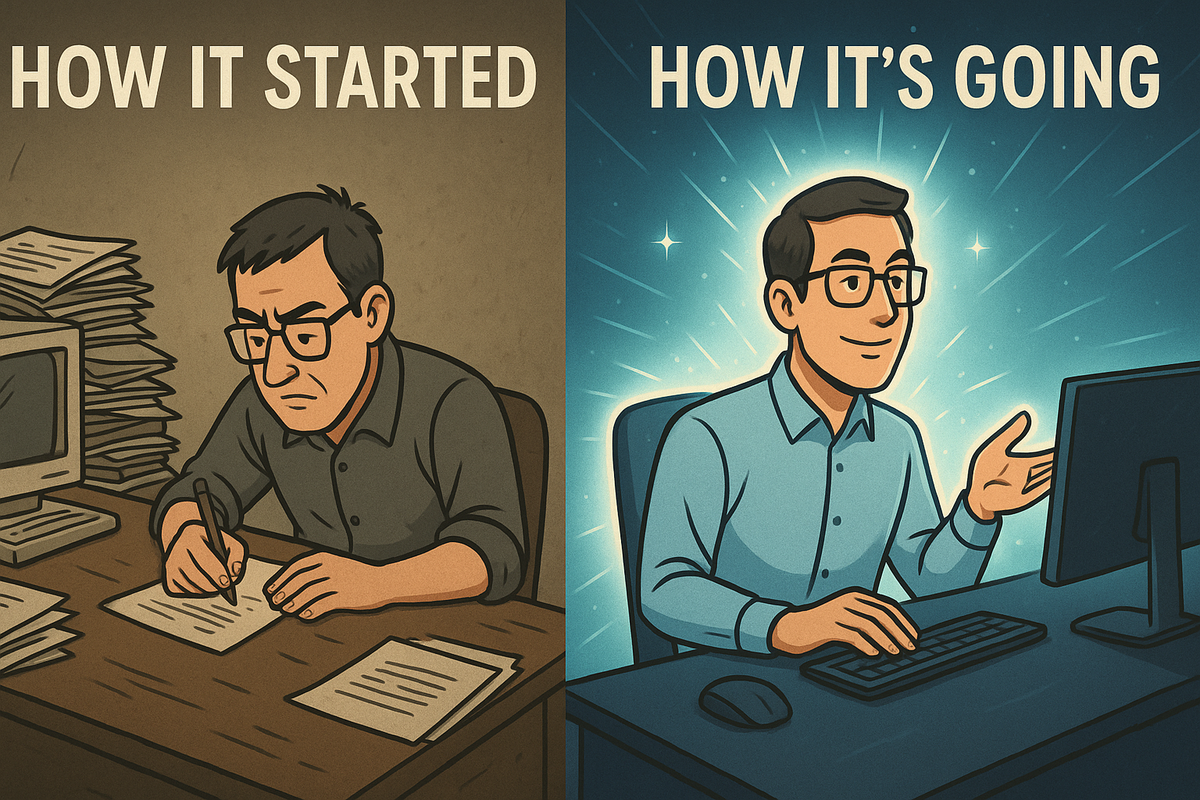How AI Changes What's Possible, Not Just What's Faster
AI isn't just making existing processes faster—it's enabling organizations to adopt capabilities they could never afford before. This creates leapfrog advantages for players previously locked out by resource constraints.

The Efficiency Gains We Expected
It was obvious early on that we were going to be able to do more things more quickly with the help of AI tooling. I didn't anticipate but it makes a lot of sense that some would find it a challenge to transition from a more established way of doing something they were comfortable with to a new but uncertain way that could provide exponential benefits.
I've worked in tech companies for decades so it was a surprise, however, to be reminded that there are a range of organizations that just couldn't do things in the old way and that AI might allow them to leapfrog that stage completely.
I'm currently working with a client who runs a nonprofit and he's found some of the things I've shared transformational, not to brag.
"That's the real value you can bring, Saadiq: revolutionize our organization. Take the spit-and-tissue-paper you saw just now … it's crazy. You're killing me right now."
The Capability Gap We Overlooked
It was obvious that tasks that took 10 hours were now going to be completed in one or two hours. But I overlooked that there's a set of organizations who were never able to solve some problems because they couldn't afford to. They couldn't afford the manpower. They couldn't afford the technology. They were just doing all they could with the resources they had but as a result just doing less.
Now these technologies bring a host of things into play that previously just weren't. There previously wasn't time to refine their website based on metrics. They had more important things to worry about.
Automation and efficiency weren't options as they were just trying to get things done at all. Scale is a privilege. They were constrained by priorities and what they could afford.
Now they can do so much more. It's not that they're replacing people or processes. They are now able to adopt processes that they couldn't have afforded previously.
I have another client who, in her own words, is absolutely killing it because of all the things she can execute.
"I'm a complete monster at work."
Many important but non-critical tasks wouldn't have been done or wouldn't have been done well. Interview rubrics, scripts, and synthesis of outputs for a process for which she's the hiring manager. It's something that she'd have liked to have done but probably wouldn't have been able to and they'd have muddled through. A lot of things will be incrementally or maybe even exponentially improved but are also just things that wouldn't have been able to happen otherwise.
The Leapfrog Advantage
This dynamic, where constraints become advantages when new solutions emerge, isn't unique to AI adoption, of course. This reminds me of when I learned that many African nations had poor landline coverage because their geography and the economics of that kind of infrastructure investment just didn't work for them. When cellular arrived, they just leapfrogged and completely skipped all of the landline stuff and went straight to cellular because that technology solved their problems in a way the previous tech never could. They could put towers up and serve wide expanses.
So what are the organizations and individuals that are going to perform a similar leapfrog with AI? Perhaps they aren't burdened by past investments and are free of paralysis because these actions wouldn't be able to happen at all otherwise. They just have needs, and this is the only way they could solve it.
These aren't just efficiency stories. They're previews of competitive disruption.
- Small consultancies can now offer market research previously requiring dedicated analysts
- Bootstrapped startups can run sophisticated campaigns that once demanded agency budgets
- Superintelligent, an AI consultancy, performs interviews of all client employees via voice-enabled AI agents for their 'agent readiness audits' that would have been prohibitively expensive to have a Big Five consulting company execute with people
The new winners won't necessarily be AI leaders, but nimble players previously locked out by resource requirements.